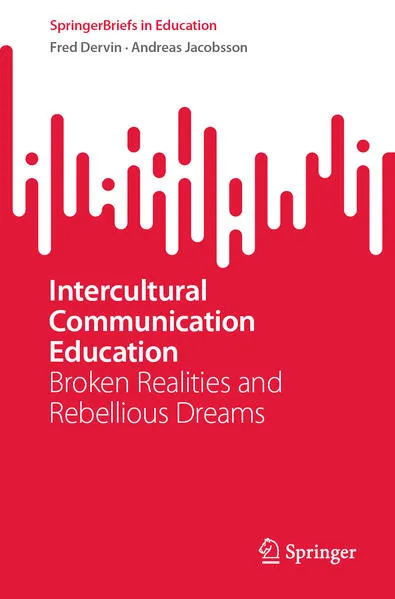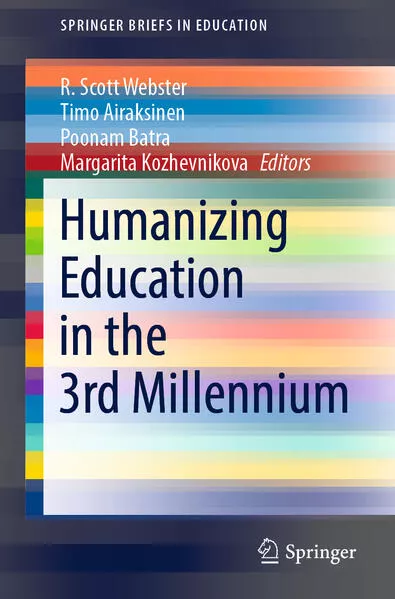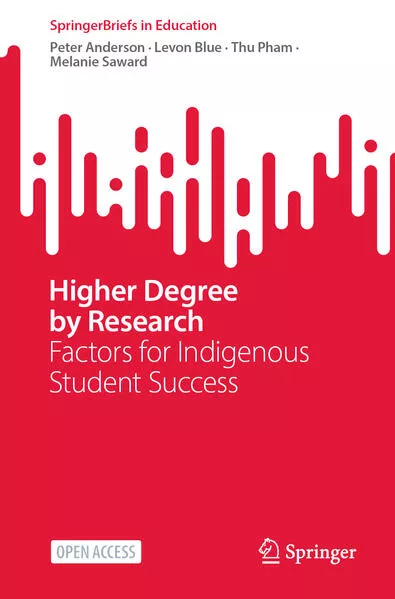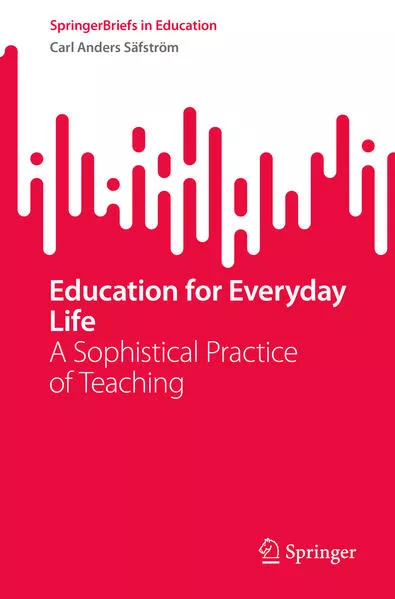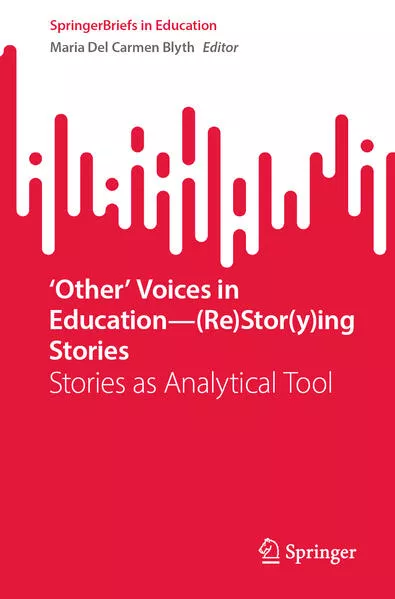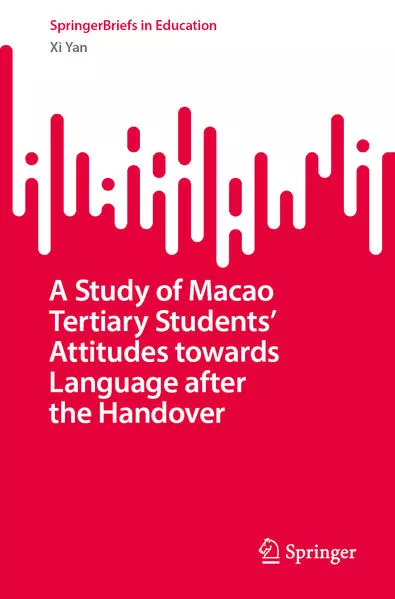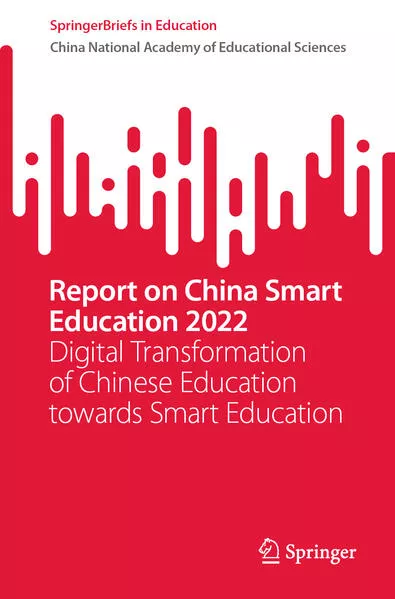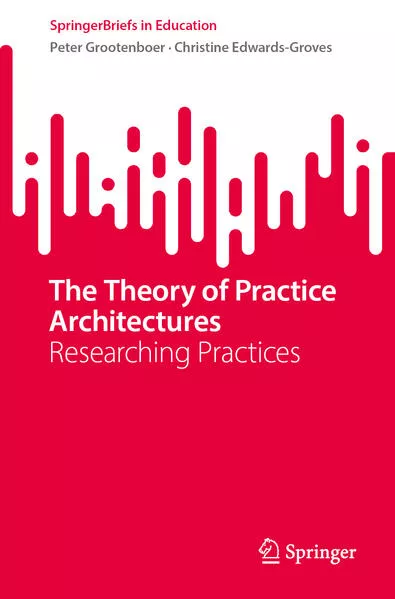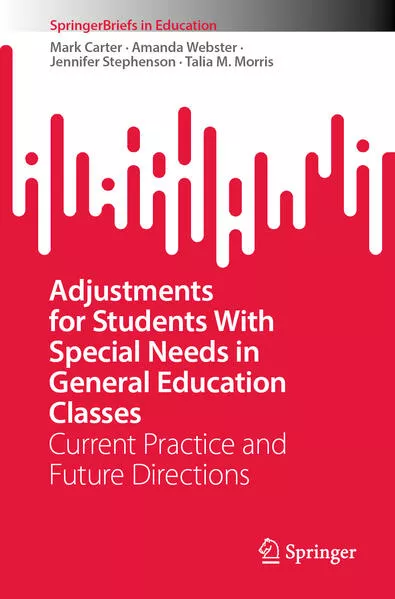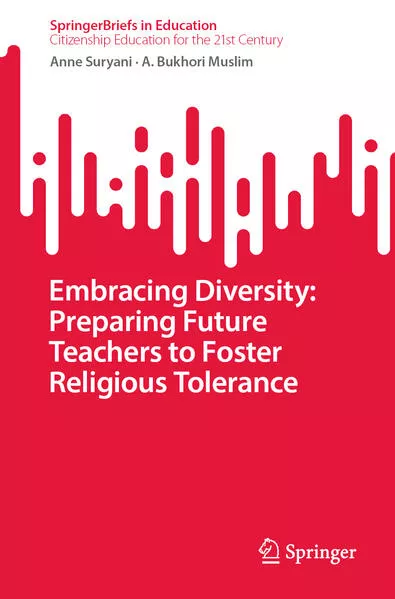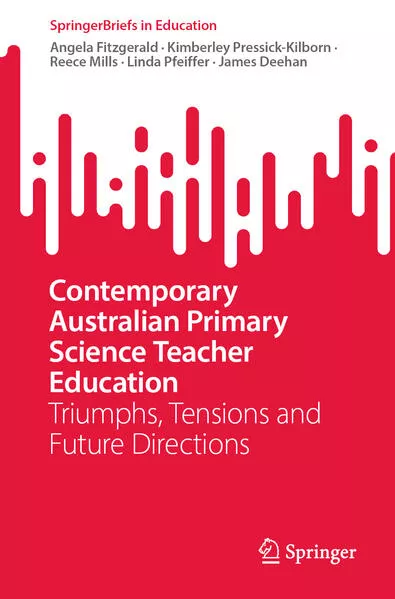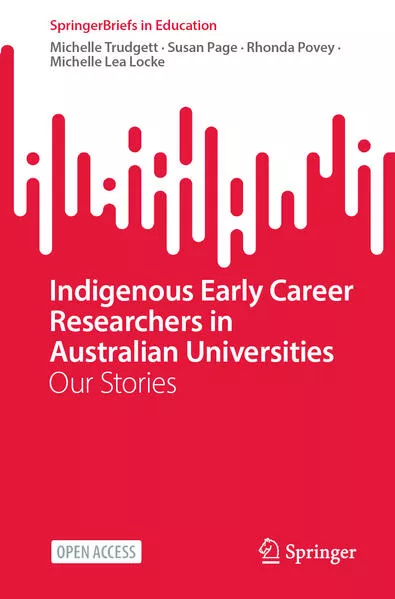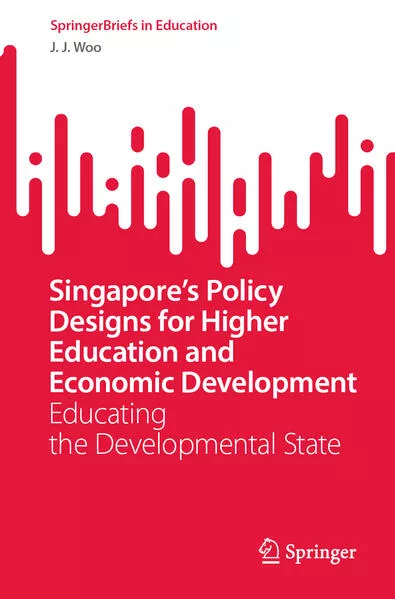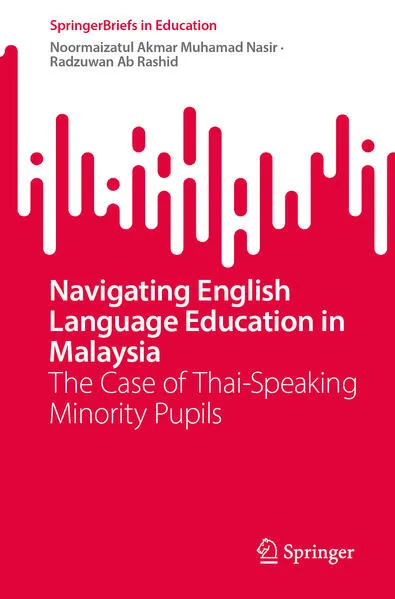Chronologie aller Bände (1 - 16)
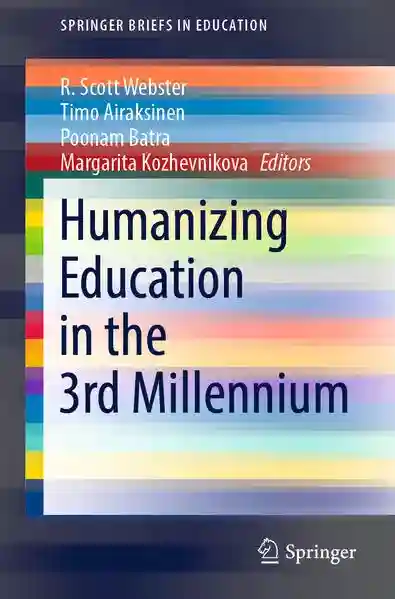
Die Reihenfolge beginnt mit dem Buch "Intercultural Communication Education". Wer alle Bücher der Reihe nach lesen möchte, sollte mit diesem Band von Fred Dervin beginnen. Der zweite Teil der Reihe "Humanizing Education in the 3rd Millennium" ist am 20.06.2022 erschienen. Mit insgesamt 16 Bänden wurde die Reihe über einen Zeitraum von ungefähr 4 Jahren fortgesetzt. Der neueste Band trägt den Titel "Navigating English Language Education in Malaysia".
- Anzahl der Bewertungen für die gesamte Reihe: 1
- Ø Bewertung der Reihe: 5
- Start der Reihe: 24.04.2022
- Neueste Folge: 02.12.2025
Diese Reihenfolge enthält 16 unterschiedliche Autoren.
- Autor: Dervin, Fred
- Anzahl Bewertungen: 0
- Ø Bewertung:
- Medium: Buch
- Veröffentlicht: 24.04.2022
- Genre: Sonstiges
Intercultural Communication Education
- Autor: Webster, R. Scott
- Anzahl Bewertungen: 1
- Ø Bewertung: 5.0
- Medium: Buch
- Veröffentlicht: 21.06.2022
- Genre: Politik
Humanizing Education in the 3rd Millennium
This book proposes some insights and ideas into how education might be humanized. The chapters inform, provoke, and guide further inquiries into imagining and actualizing human education. It presents the view that education should be primarily understood as human education, which offers universal good for the entire planet. It centres around the significant values that make life, in a holistic sense, meaningful, worthwhile, and socially just. It discusses the fundamental idea that human education is the key to peace, individual and social freedoms, social justice and harmony, fraternity and happiness all over the world, and how educational ideals and methods must be reconsidered to achieve this end.
This book originates from an international conference and round-table, “Human Education in the 3rd Millennium,” in July 2019 in Dharamsala, India.- Autor: Anderson, Peter
- Anzahl Bewertungen: 0
- Ø Bewertung:
- Medium: Buch
- Veröffentlicht: 31.08.2022
- Genre: Politik
Higher Degree by Research
- Autor: Säfström, Carl Anders
- Anzahl Bewertungen: 0
- Ø Bewertung:
- Medium: E-Book
- Veröffentlicht: 21.10.2023
- Genre: Politik
Education for Everyday Life
This book examines the role of teaching within public education. It critiques its function in today's educational policies and theories and establishes an alternative way of understanding teaching. It explores teaching from within a Sophist tradition of educational practice and thought.
The first part of the book discusses the vital link between public education and democracy, the shifts in schooling's role in fostering competition and comparisons at the cost of social responsibility and democratisation. It identifies the driving force of those shifts as forces of aggression and destruction, central to a neoliberal ideology. The second part of the book argues for a practice of Sophistical teaching rather than Socratic teaching. It explores in-depth what it could mean to be teaching in an up-to-date sophist tradition of educational thought and practice.
The book also includes insights for teaching to counter aggressive forces of nationalism, racism, and late capitalism's violence and the escalating climate crisis. Readers will be able to understand teaching within educational thought and precisely how different teaching forms can contribute to education as democratisation.
- Autor: Blyth, Maria Del Carmen
- Anzahl Bewertungen: 0
- Ø Bewertung:
- Medium: Buch
- Veröffentlicht: 02.11.2023
- Genre: Politik
‘Other’ Voices in Education—(Re)Stor(y)ing Stories
This book explores how stories can be used as ‘data’ that prefigure and make possible the numerous permutations of life that comprise existence, and examines how stories can be reconfigured to transform that existence into something 'other'. It uses varied theoretical and critical frameworks such as autoethnography and posthumanism with which to explore the stories shared that go ‘beyond cause and effect’.
This book looks to engage with storying and storytelling as inquiry in non-Western ‘worlds’, and looks to make ‘storying’, ‘restor(y)ing’, and ‘stories’ written by non-Western educators the locus of attention. By doing so, it seeks to illustrate what distinctive ways of storying and storytelling can look like in worlds other than those that follow a Western ethico-onto-epistemological worldview. It provides a way to articulate thought that may be commonly omitted in teacher education around the world, and looks at ‘truth’ as situated rather than as totality, localrather than global, with stories used to problematize subject/object positionings within those same stories.
- Autor: Yan, Xi
- Anzahl Bewertungen: 0
- Ø Bewertung:
- Medium: Buch
- Veröffentlicht: 20.11.2023
- Genre: Politik
A Study of Macao Tertiary Students’ Attitudes Towards Language After the Handover
- Autor: China National Academy of Educational Sciences (CNAES)
- Anzahl Bewertungen: 0
- Ø Bewertung:
- Medium: Buch
- Veröffentlicht: 23.11.2023
- Genre: Politik
Report on China Smart Education 2022
This book aims to reflect the digital transformation of Chinese education toward smart education comprehensively and accurately. It is the first systematic summary of the progress of smart education in China. The book believes that smart education is a new education form in the digital era and is essentially distinct from education forms in the industrial era. This new education form is innovative in five dimensions.
First is the new core concept. Smart education is not only a concrete action concerning people’s well-being, but also a vital strategy concerning national plans. Through technology empowerment and data drive, it empowers educational reform in all aspects, systematically constructs a new relationship between education and society, provides suitable education for each learner, and makes the aptitude-based teaching that we have been dreaming of for thousands of years a reality. For the first time in history, smart education helps to reach the full alignment between individual development and societal development.
Second is the new system structure. Smart education will break through the boundaries of school education, drive the diversified combination of various education types, resources, and elements, promote the collaboration of school, family, and society in education, and build a high-quality, individualized lifelong learning system that is available for anyone anywhere anytime.
Third is the new teaching paradigm. Smart education will integrate physical, social, and digital spaces to create new learning scenarios and promote human–technology integration, and cultivate cross-grade, cross-class, and cross-discipline learning communities across time and space to organically combine large-scale education with individualized cultivation.
Fourth is the new educational content. Smart education will focus on developing all-round education, establishing digital knowledge graphs based on systematic logics of knowledge points, and innovating content presentation methods to make learning a wonderful experience and help learners develop higher-order thinking skills, comprehensive innovation capability, and lifelong learning ability.
Fifth is the new education governance. With data governance at the core and digital intelligence technology as the driver, smart education will boost the holistic reengineering of education administration and business processes and enhance the modernization of the education governance system and governance capacity.
This book is intended for teachers, education administrators, education policymakers, education researchers, and parents concerned about education innovation and development, as well as people from all walks of life who have aspirations for the education industry. It can also serve as a reference for international organizations and education research institutions of all countriesto promote the joint exploration of the development path of smart education and create a better future for the world’s mutual development through educational reform.
- Autor: Grootenboer, Peter
- Anzahl Bewertungen: 0
- Ø Bewertung:
- Medium: Buch
- Veröffentlicht: 03.12.2023
- Genre: Politik
The Theory of Practice Architectures
- Autor: Carter, Mark
- Anzahl Bewertungen: 0
- Ø Bewertung:
- Medium: Buch
- Veröffentlicht: 23.01.2024
- Genre: Politik
Adjustments for Students With Special Needs in General Education Classes
This book reports a systematic synthesis of research on teachers' use of adjustments to support students with special educational needs who are currently in their mainstream classrooms. It presents a comprehensive analysis and synthesis of both quantitative and qualitative data, including studies involving observation, artefact examination, interviews, and surveys. It offers a holistic understanding of the current practices used by teachers to fulfil the intent of international inclusive education policy, and support the inclusion of students with a range of needs within the context of mainstream classrooms and programmes. This book also offers a range of recommendations for improving practice.
- Autor: Suryani, Anne
- Anzahl Bewertungen: 0
- Ø Bewertung:
- Medium: Buch
- Veröffentlicht: 24.04.2024
- Genre: Politik
Embracing Diversity: Preparing Future Teachers to Foster Religious Tolerance
- Autor: Fitzgerald, Angela
- Anzahl Bewertungen: 0
- Ø Bewertung:
- Medium: Buch
- Veröffentlicht: 07.09.2024
- Genre: Politik
Contemporary Australian Primary Science Teacher Education
This book provides an evidence-based response to how ‘classroom-readiness’ translates into the preparation of future teachers of science. It juxtaposes contemporary understanding of programming and practices in initial teacher education in an Australian context against international narratives. Through this, this book shifts the understanding of primary science education from a deficit model to one that critically examines, challenges and contest what is happening in this space, and why. It proposes problems of practice in primary science teacher education and then draws on these provocations to provide insights into possible solutions.
- Autor: Trudgett, Michelle / Page, Susan / Povey, Rhonda / Locke, Miche
- Anzahl Bewertungen: 0
- Ø Bewertung:
- Medium: Buch
- Veröffentlicht: 13.09.2024
- Genre: Politik
Indigenous Early Career Researchers in Australian Universities
This open access book explores the key barriers and facilitators to advancing meaningful and fulfilling academic careers in the higher education sector for Australian Indigenous doctoral graduates. It focuses on the career trajectories of Indigenous early career researchers who have participated in the Developing Indigenous Australian Early Career Researchers study, funded by the Australian Research Council (ARC). It delves into a deeper understanding of the professional development requirements of Indigenous Early Career Research academics and presents a new set of knowledge which incorporates Indigenous standpoints, thus creating new avenues for Indigenous early career researchers to articulate their living experiences and perspectives for the benefit of their colleagues, in the present and the future.
This book also provides a model of best practice collaborative approach through its methodology, method, and structural design. The various chapters present first-hand experience with an Indigenist methodological approach, including access to respectful use of culturally appropriate terminology, modelled by the authors and carefully footnoted with explanatory notes. Its writing is also guided by ethical principles concerning Indigenous Intellectual Property Rights. This book serves as a compendium of critique for current and future Indigenous early career researchers, as well as an encouragement for mentors and advocates for equity and parity for Indigenous academics in higher education. Through the voices of Indigenous early career researchers, this book positions universities well to facilitate improved Indigenous outcomes and to continue to pursue educational equity within the higher education sector.
- Autor: Choi, Tae-Hee
- Anzahl Bewertungen: 0
- Ø Bewertung:
- Medium: Buch
- Veröffentlicht: 30.11.2024
- Genre: Politik
Outsourcing of Teaching English to Speakers of Other Languages
This book documents and analyses how outsourcing of teaching English to Speakers of Other Languages (ESOL) is practised, arising issues therein, and how to address them, through the frame of policy enactment theory. Educational outsourcing or contracting out is globally adopted to increase cost-efficiency, diversify curricula, and complement teacher expertise. However, it often results in issues of quality and equity, inadvertently compromising student learning and limiting the mobility of students from low-income families. The book draws on document-based research involving 131 schools in Hong Kong and case studies and a survey with selected schools and educational service providers. This book is of interest to policymakers, school leaders, teachers, and educational service providers, as it suggests the strategies addressing the abovementioned issues and will advance their understanding of educational outsourcing, equity, and policy processes.
- Autor: Woo, J.J.
- Anzahl Bewertungen: 0
- Ø Bewertung:
- Medium: Buch
- Veröffentlicht: 27.12.2024
- Genre: Politik
Singapore’s Policy Designs for Higher Education and Economic Development
This book provides an overview of Singapore’s higher education system, focusing in particular on its role in supporting and facilitating the city-state’s economic development policies. It discusses the various components of Singapore’s post-secondary higher education system, such as its public and private universities, polytechnics, institutes of technical education, private educational institutions, foreign universities, government-affiliated and private training institutions, among others, and explicates the linkages between higher education and economic development. Aside from educational institutions, this book also discusses the Skills Future scheme, which provides deep skills training to working adults in collaboration with the Singapore’s various higher education providers.
- Autor: Qutieshat, Abubaker
- Anzahl Bewertungen: 0
- Ø Bewertung:
- Medium: Buch
- Veröffentlicht: 22.01.2025
- Genre: Politik
Artificial Intelligence in Higher Education
This book is multi-dimensional exploration of Ivan Illich's critique of institutionalized education. It dissects, analyzes, and understands the implications of his critique for the future of education in a world increasingly influenced by technology, particularly artificial intelligence (AI).
The book outlines the problems with current educational systems and discusses potential alternatives, considering the role of modern technology like AI. It employs a multi-disciplinary approach, incorporating historical analysis, philosophical inquiry, and practical considerations to explore Illich's critique. Readers will be equipped with the knowledge to critically assess the educational landscape and consider viable alternatives for reform.
This book contributes to the field of educational theory and practice in its nuanced understanding of Illich's critique and its implications for educational reform. It serves as both a theoretical exploration and a practical guide, making it a valuable resource for a wide range of readers, including educators, policymakers, students, and anyone interested in the future of education.
- Autor: Akmar Muhamad Nasir, Noormaizatul
- Anzahl Bewertungen: 0
- Ø Bewertung:
- Medium: Buch
- Veröffentlicht: 02.12.2025
- Genre: Sonstiges
Navigating English Language Education in Malaysia
This book explores the unique experiences of Thai-speaking minority students within Malaysia's multilingual educational landscape. It focuses on how these students, often overlooked in educational discourse, navigate learning English as a third language amidst the linguistic dominance of Bahasa Malaysia in national schools.
It examines the sociolinguistic and educational challenges Thai-speaking students face in Malaysia, particularly in the context of English Language Learning (ELL). By focusing on this minority group, it highlights the broader dynamics of multilingual education and the implications of learning English alongside another non-native language, Bahasa Malaysia. By documenting the lived experiences of a minority group that is often marginalized in policy discussions, it offers new insights into how minority students navigate the dual challenge of mastering English as a third language and achieving academic success in a second language (Bahasa Malaysia).
This book adds to the body of research on linguistic minorities and educational equity, and challenges the existing paradigms of language learning in multicultural societies like Malaysia. It employs a qualitative research approach, with ethnographic observations and semi-structured interviews conducted among Thai-speaking pupils. These methods allow for an in-depth understanding of the students' cognitive and emotional responses to learning in a linguistically complex environment. It also introduces an innovative framework for assessing how sociocultural and linguistic factors intersect to affect learning outcomes.
Readers will gain a nuanced understanding of how multilingual and minority students experience education in Malaysia. This book serves as a helpful resource for educators, policymakers, and researchers interested in multilingual education, as it offers practical strategies to support minority students in overcoming linguistic barriers. Furthermore, it also offers a broader reflection on the importance of language diversity in achieving equitable educational outcomes.
